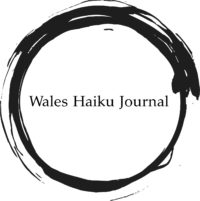The Wales Arts Review is very proud to support the Wales Haiku Journal, a new publication that focuses on the art of haiku poetry in the English language. Here, the editor, Paul Chambers, outlines his exciting vision for the latest edition to the Welsh literary landscape.
The founding principle for the Wales Haiku Journal is the creation of a dynamic, engaging, and responsive space for the curation of English language haiku. The aim of the journal is to regularly publish a wide range of haiku poetry and special features related to the form, such as interviews with poets, a gallery of haiga and photo-haiku, essays and linked verse collaborations, and multimedia features such as videos and podcasts.
A key feature of the potential dynamism of the journal is its online presence and the opportunities a digital space offers a poetry publication. While there are undoubtedly several fine online haiku journals in existence, for the most part they are static once each issue is published. In developing the Wales Haiku Journal, I felt that building a website simply to host another haiku publication in a PDF or e-magazine format, would be to work counter to the potential of what an online journal can be.
Rather than simply serving a space to host a publication, that to all intents and purposes resembles a print publication, my vision was to make the website the journal itself. In managing the content in a similar way to an online arts publication, in which new work and features are uploaded regularly, my ambition is to make the Wales Haiku Journal a dynamic space that people can visit and experience new material regularly.
The opportunity for haiku poets to compose work in response to contemporary events, and then see their work published while awareness of these events is still strong, is important for broadening the form’s social relevance. Unfortunately, there are currently very little spaces available for this immediacy of publication to take place. Roberta Beary’s ‘random gunfire’ poem in our launch issue, written in response to the school shooting in Florida, is a particularly poignant example of what haiku poets can offer to the collective response to such events, if they are given a dynamic platform form which to share their work.
Haiku is not a form that lends itself well to binge reading. The demands on the reader to enter into a poem makes the reading of haiku a slower, more contemplative experience. And so, rather than publish an issue in its entirety and then not feature any new content for perhaps four or five months at a time, I believe that publishing a small number haiku and related features at a time represents a more meaningful way of curating the work in a digital space. Rather than having set publication dates, the journal will be updated with new content on a rolling basis throughout the year. The journal will also have its own social media channels, through which to promote the publication of new material and encourage dialogue between readers and writers.
Another major ambition for the journal is to nurture the development and appreciation of the haiku form in Wales. Later this year, the Wales Haiku Journal will launch a haiku competition for young writers across Wales, offering a rewarding opportunity for children and teenagers to engage in the form. There are also several collaborative community projects currently being developed in South Wales, all designed with the intention of spreading further awareness of haiku and its potential for cultivating emotional and spiritual growth. With the journal at the centre of these endeavours, it is my hope that the publication can serve as a positive communal space for a vibrant and collaborative haiku community in Wales.
With the support of the Wales Arts Review, Wales now has its first haiku journal – the first English language haiku journal in the world to be published in partnership with a national arts publication. My hope is that its presence will provide the form with a dynamic space for sharing and reflection, helping appreciation for haiku to deepen and grow, both here and beyond these borders.












